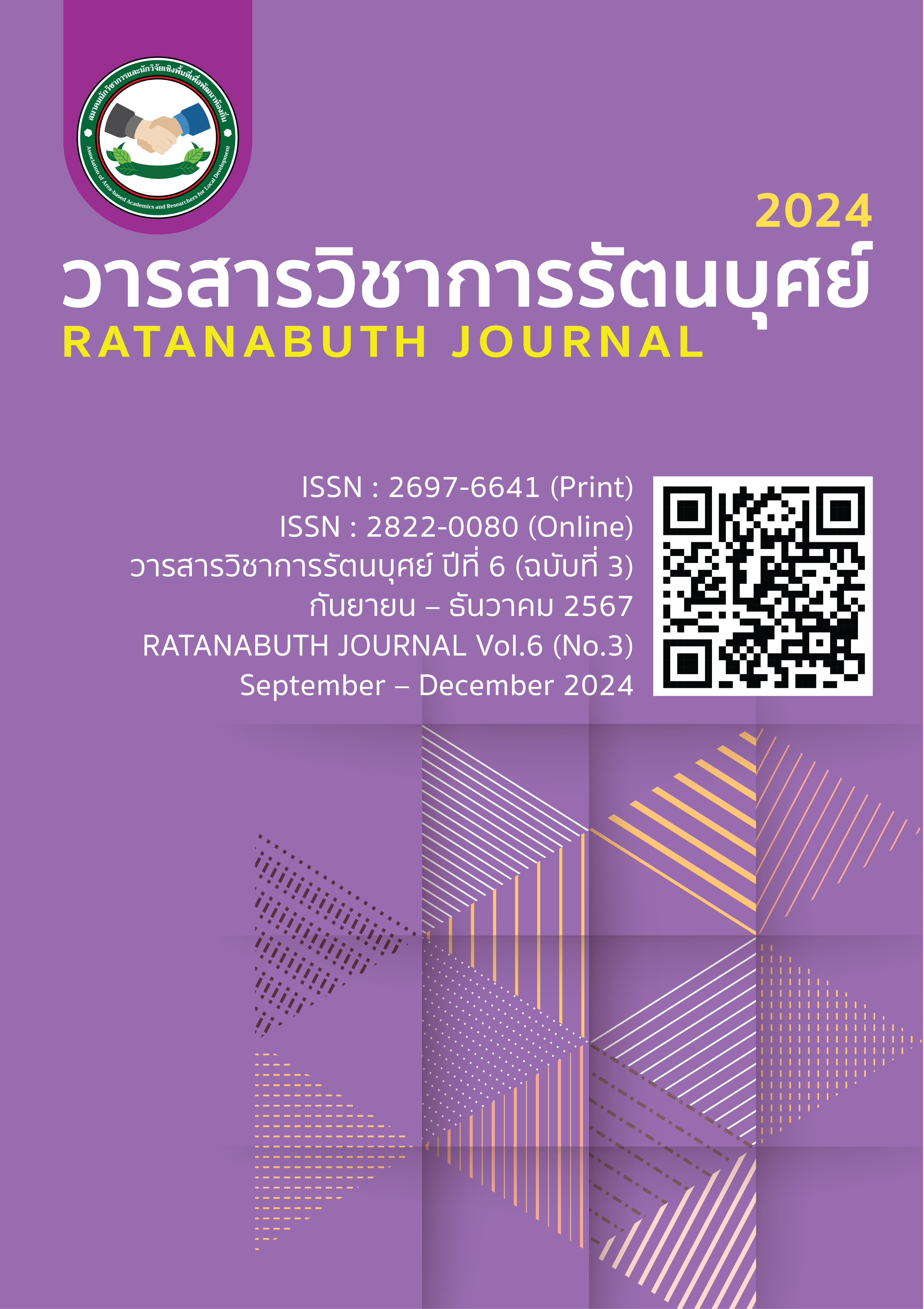Decentralization and Local Governance: Concepts, Key Issues, and the Future of Provincial Governor Elections in Thailand Decentralization and Local Governance: Concepts, Key Issues, and the Future of Provincial Governor Elections in Thailand
Main Article Content
Abstract
Decentralization and local governance are critical topics in Thailand's administrative system. This article analyzes the fundamental concepts of decentralization, particularly in the context of electing provincial governors, highlighting the importance of public participation in local development. It examines the current administrative structure and related challenges. The findings indicate that despite efforts to decentralize, policy and administrative limitations persist. This article proposes future strategies to enhance fairness, transparency, and citizen engagement at the local level.
This article has three purposes: 1. To study the important concepts and issues of decentralization and local government in Thailand, focusing on the issues of decentralization and local government in Thailand, the election of provincial governors, which are currently receiving much attention. 2. To study the exercise of people's rights in the election of provincial governors in Thailand 3. To study the public's suggestions on the outcome of the election for the governor of Thailand. This article will present critical analysis on history and Development of decentralization as well as challenges and opportunities for local governments to face in the future, focusing on the election of provincial governors. Therefore, the election of provincial governors is a good thing, necessary and important for changing the country by changing the democratic system from the grassroots to the long-term democratic development of the country. Thailand is ready to organize the election of provincial governors because Thailand has had the election of sub-district administrative organizations (SAOs) and provincial administrative organizations (PAOs) many times already. The people have a good knowledge and understanding of the election.
Article Details

This work is licensed under a Creative Commons Attribution-NonCommercial-NoDerivatives 4.0 International License.
References
กระทรวงมหาดไทย.(2555). หน้าที่ความรับผิดชอบของตำแหน่งลักษณะงานที่ปฏิบัติ ความรู้ความสามารถที่ต้องการ และคุณสมบัติของตำแหน่งผู้ว่าราชการจังหวัด.สืบค้นเมื่อ 1 กันยายน 2567 จากhttp://www.personnel.moi.go.th/work/work2/examiner/pong/pong_02.doc.
โกวิทย์ พวงงาม. (2554). การกระจายอำนาจการปกครอง. วารสารการเมืองและการบริหารท้องถิ่น, 12(1), 45-67.
ธเนศวร์ เจริญเมือง.(2566a). การกระจายอำนาจสู่ท้องถิ่น Decentralization. เชียงใหม่: ศูนย์สร้างสรรค์เมืองเชียงใหม่.
ธเนศวร์ เจริญเมือง. (2566b). ผู้ว่าฯเลือกตั้ง โดยประชาชน The Governor by People’s Election. เชียงใหม่: ศูนย์สร้างสรรค์เมืองเชียงใหม่.
ดาวนภา เกตุทอง.(2563). การกระจายอำนาจสู่องค์กรปกครองท้องถิ่น.วารสาร มจร เพชรบุรีปริทรรศน์,3(2),46-57.
ไพฑูรย์ โพธิสว่าง และวิเชียร ตันศิริ.(2556). ปัจจัยที่มีผลต่อการได้รับคะแนนเสียงเลือกตั้งของผู้นําทางการเมืองของประเทศไทย. ใน รายงานการวิจัย. ชลบุรี:มหาวิทยาลัยบูรพา.
ภิรมย์พร ไชยยนต์. (2557). การกระจายอำนาจการปกครองท้องถิ่น: ศึกษากรณีการปกครองตนเองตามเจตนารมณ์ของประชาชนในระดับจังหวัด. วิทยานิพนธ์หลักสูตรนิติศาสตร์มหาบัณฑิต สาขานิติศาสตร์.กรุงเทพฯ: สถาบันบัณฑิตพัฒนบริหารศาสตร์.
รัฐธรรมนูญแห่งราชอาณาจักรไทย พุทธศักราช 2560 (6 เมษายน 2560). ราชกิจจานุเบกษา, เล่ม 134, ตอนที่ 40 ก, หน้า 19-20, 67-70.
ลิขิต ธีรเวคิน.(2549). หลักการประชาธิปไตย 12 ประการ ที่นักการเมืองต้องเข้าใจและยึดถือ.สืบค้นเมื่อ 20 กรกฎาคม 2567 จาก https://mgronline.com/daily/detail/9490000055325.
วุฒิสาร ตันไชย.(2558). การกระจายอำนาจรัฐเพื่อการยกระดับประชาธิปไตยและสร้างความเป็นธรรม. กรุงเทพมหานคร: สถาบันพระปกเกล้า.
สุกิจ เจริญรัตนกุล (บก.). (2529). การเมือง-การบริหารราชการไทย: รวมบทความนักวิชาการต่างประเทศ ภาค 1 - ภาค 6. กรุงเทพฯ: โอเดียนสโตร์.
สำนักงานศาลรัฐธรรมนูญ. (2564). รัฐธรรมนูญแห่งราชอาณาจักรไทย พุทธศักราช 2560. พิมพ์ครั้งที่ 4. กรุงเทพฯ : สำนักงานศาลรัฐธรรมนูญ.


